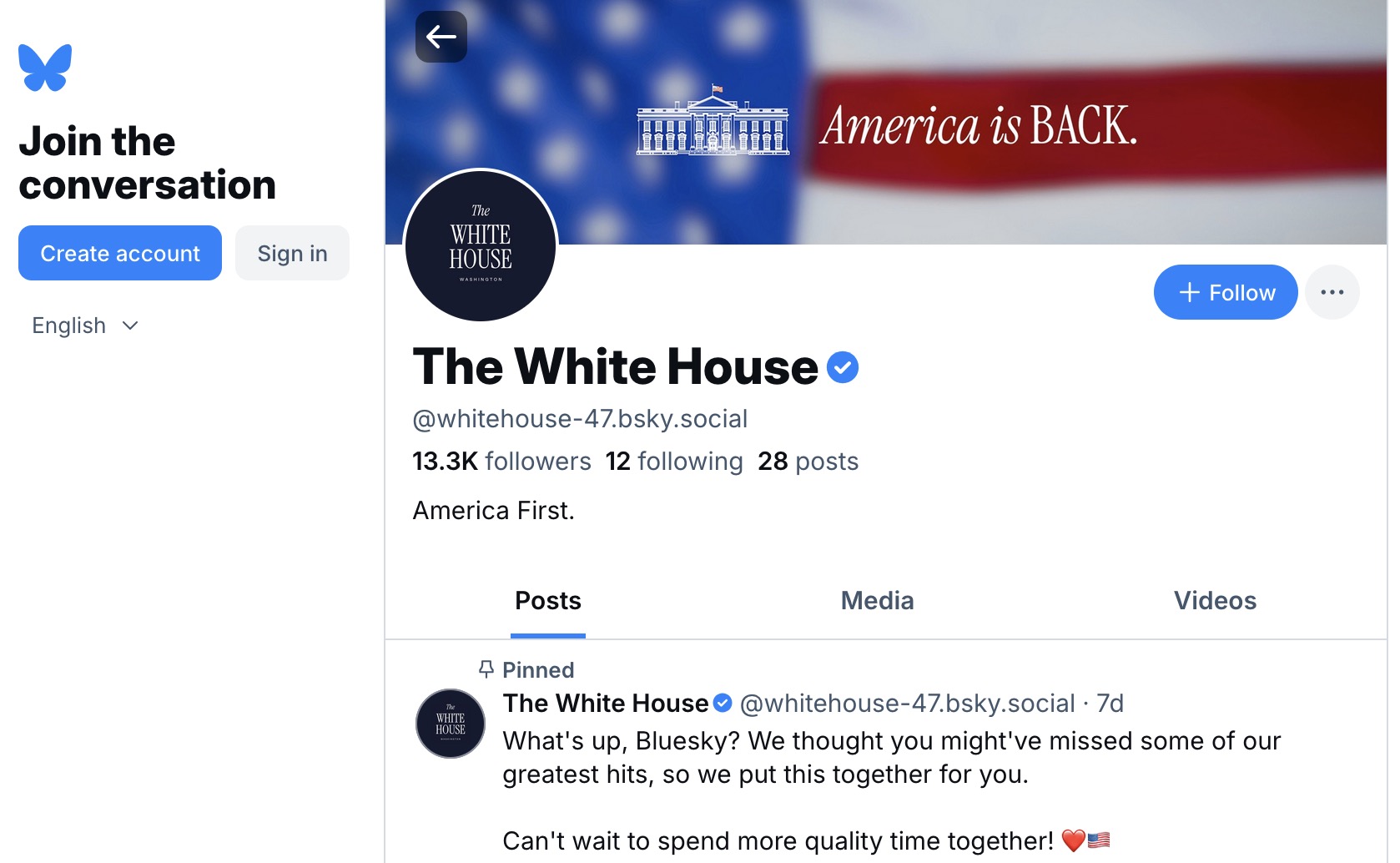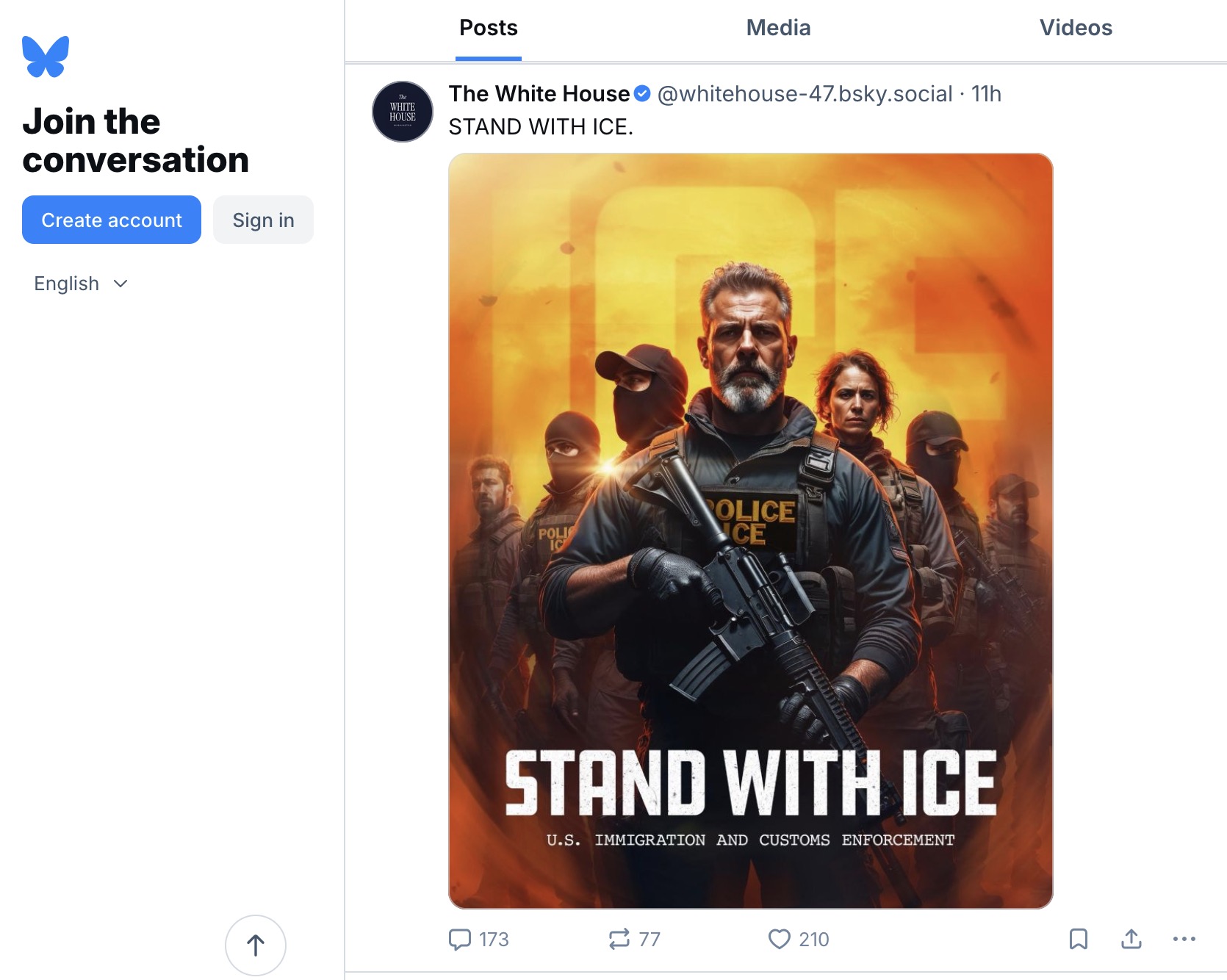Bluesky – it is all over now, baby blue!

There was an opportunity to create something great. A chance to sweep up the debris left behind by the demise of Twitter. It was an opportunity to restart a decentralized network based on the AT protocol. Federated. Nearly two years ago, I shared my thoughts on Bluesky, asking if it was worth a visit. Yes, there was hope. Now, however, it seems that freedom of speech, venture capital and decentralization don't quite get along!
Many people were sceptical but I must admit that I had hope for this new social network that (of course) wouldn’t meet the criteria of the rather safe space I’ve found especially in Mastodon. But it had a chance anyway and with deploying your own Personal Data Server (PDS), the illusion of being independent from the main network was created, underlining the statement towards federation and decentralization. Maybe I was that naive to really think that there could be an ethical chance of learning from Twitters alt-right, hate-filled and disgusting downfall. An open network for the open-minded, federated, independent people, steering towards a decentralized future and ran by idealists (despite being created by a crypto bro) that vowed for a change.
This October, I must admit that I was wrong and that Bluesky didn’t satisfy the expectations and the premature praise. There were discussions on limited freedom of speech with the opposite status quo of the announced open social web, a venture capital-deal with Blockchain Capital (where’s the independence anyway?), some discussions and harassment on LGBTQ+ groups (including suspending users taking their stand against JK Rowlings statements) and – finally, to cap it all off – the entering of the US Trump-regime flooding the platform with new accounts.

Yes, the oasis of freedom, the place that wanted to be better than Twitter — the open, federated space — has succumbed to the obvious and opened its gates to the incomprehensible. The feel-good bubble has burst, Bluesky has been invaded and this status quo will be permanent — accompanied by the White House's „What's up, Bluesky?“ post. Apart from the seemingly randomly chosen usernames (did nobody tell the tech-savvy people there that proper handles look more professional and authentic?), the creation of all those accounts seems like a cheap trick to further destabilize trust in independent social media – so far the focus seemed to be rather on trolling democrats and recruiting new ICE-staff if you have a look on the first posts.
Let's not delude ourselves — this step was only a matter of time. Considering who controls Bluesky — it has evolved into a venture capital company — there is not much independence left. Neither the users nor the federated instances (hint: There aren’t any – once the main instance goes down, your PDS will also malfunction) are capable of preventing users from registering for the service. Considering the Trump-administration, there will possibly be orders to allow this in order to capture yet another social media platform. In this context, Bluesky is now in great company with most Silicon Valley enterprises that have already donated to Trump’s inauguration or to the destruction of the White House’s East Wing in order to build a $350 million ballroom – just to be safe from what, exactly? Presidential arbitrariness, perhaps!

This case once again proves that we must further decentralize and maintain real federated networks that are accountable only to their administrators. If one instance goes down (or is, in theory, taken over by fascists), the rest of the network will continue to function. There are already solutions that provide this functionality, such as Mastodon, Misskey and its derivatives, or GoToSocial for microblogging. Vernissage and Pixelfed are alternatives for photo sharing. Lemmy is an alternative to Reddit. PeerTube for YouTube. The list goes on. We have the choice, but perhaps the main task for the social networks of the future should be to prioritize independence over theoretical coverage. These can only work through decentralization and federation, therefore by being independent and free. This is what Bluesky wanted to provide, but the company finally chose to cease doing so.
I was wrong but it's never too late to learn. Focusing on the Fediverse a few years ago was definitely the right thing to do. The lesson I have learned is that there are no alternatives to Big Tech so we all should consider this more in the future!